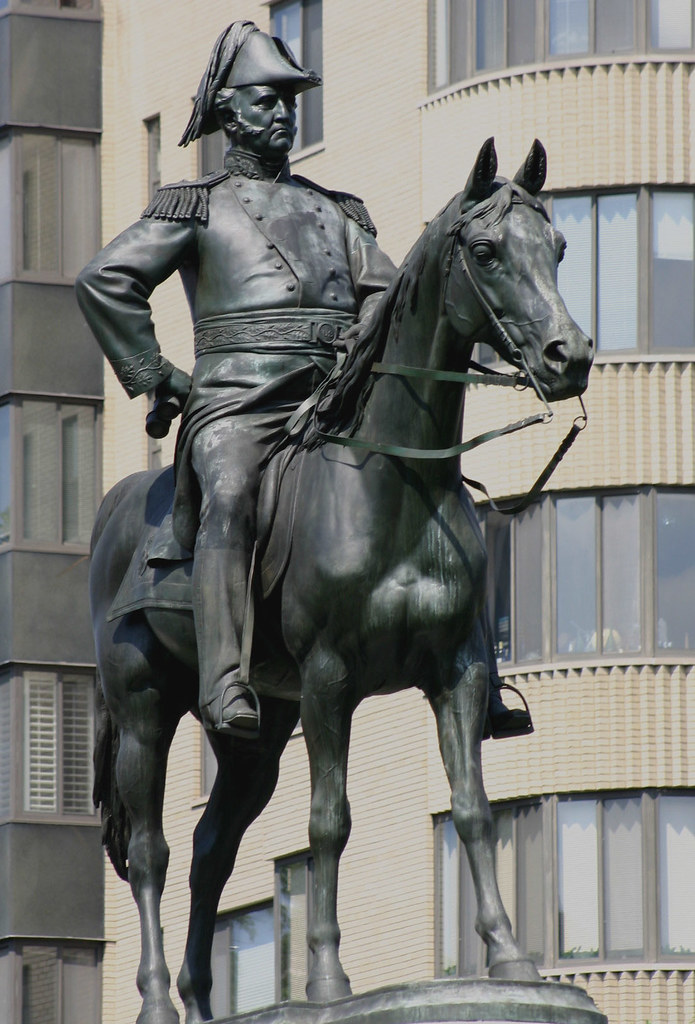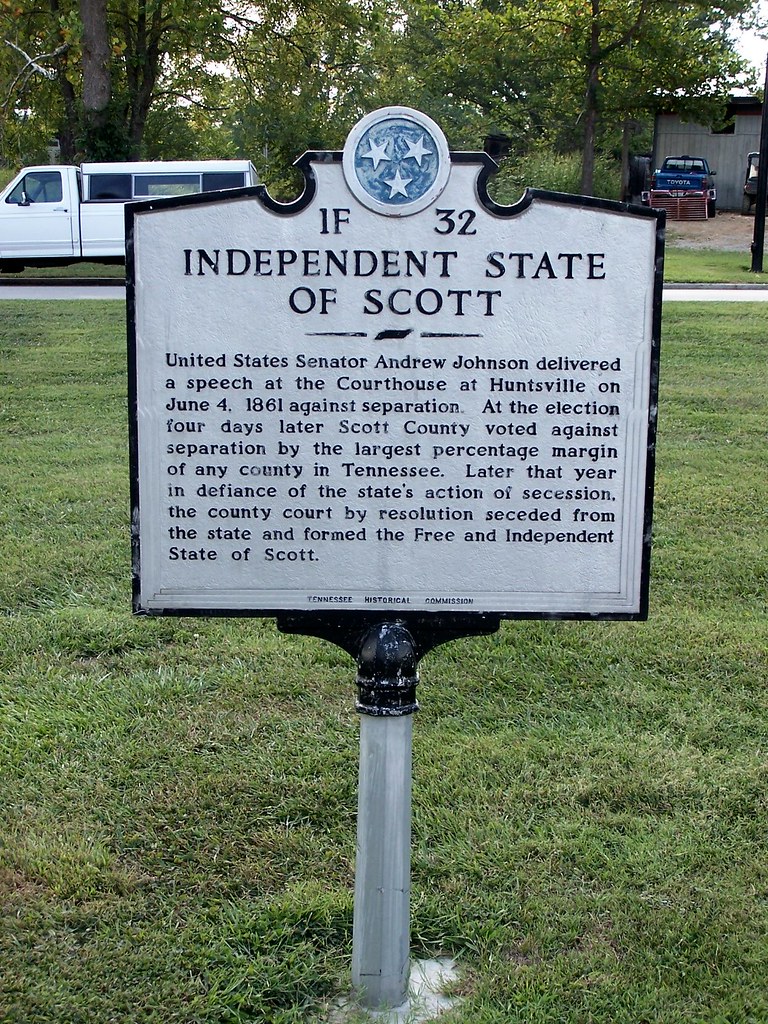It occurred to me that a great general like Winfield Scott probably influenced place names beyond the recently-featured Scott’s Addition in Richmond, Virginia. Citizens considered him a national hero during his lifetime even if we don’t hear much about him today. This period also coincided with a rapid expansion of population and migration. They needed names for all of those settlements they built on the frontier during the first half of the 19th century.

I wanted to use a better image of Winfield Scott than the unattractive photo of the elderly, bloated man near the end of his life from the previous article. The equestrian statue at Scott Circle in Washington, DC (map) seemed appropriate. Certainly I could uncover more significant geographic designations than a roundabout. How about five Scott counties named for him? They sprouted in Iowa, Kansas, Minnesota, Tennessee and Virginia
Scott County, Iowa

The Iowa county named for Scott probably measured as the most significant. Its primary city, Davenport (map), held nearly 170,000 residents.
Winfield Scott’s legendary career covered half a century. He served as a general in the War of 1812, the Black Hawk War, the Mexican–American War, and the Civil War. His wide ranging exploits inspired place names throughout his lifetime.
Scott County, Iowa traced its named to the Black Hawk War that broke out in 1832. He commanded troops during the brief campaign (losing many more men to cholera than to warfare) and helped negotiate the treaty that ended it. Much of the fighting unfolded in the vicinity of future Scott County, in neighboring Illinois and Wisconsin. Scott seemed an appropriate officer to honor when Iowa formed the county in 1837, just five years after the war ended.
The Independent State of Scott

An entire Independent State named itself for Scott. It wasn’t really independent though. Nothing official. Scott County, Tennessee traced its beginning to 1814, and named itself for Winfield Scott because of his War of 1812 activities. Geographically, much of it fell within the Appalachian Mountains. People living there farmed small plots on rocky hillsides on the far side of the frontier. They held little in common with people across the mountains and their culture of plantations and slavery. Scott County refused to join the rest of Tennessee when it seceded from the Union during the Civil War. It’s been called the The Switzerland of America both for its mountains and its neutrality.
Scott became a Union enclave, proclaiming itself an Independent State no longer beholden to Tennessee. The county had little strategic importance to either side so the Confederacy never tried to force it back into the fold. Scott did not officially rescind its “independence” from Tennessee until 1986.
The county also founded a town of Winfield (map), so a handful of residents now live in Winfield, Scott. It straddled U.S. Route 27 — Scott Highway.
Named for That Other Winfield Scott

There couldn’t be too many 19th century U.S. Army officers named Winfield Scott, or so I figured. Yet, inexplicably, there was one more. Winfield Scott — the other Winfield Scott — came into this world in 1837. I assumed his parents named him for the more famous Winfield, and the time period seemed to fit. However I didn’t find any evidence to prove it. He became a minister, later accepting a commission as an Army captain and serving as a chaplain during the Civil War. His legacy did not come from his military service [link no longer works] according to the Scottsdale Historical Society.
“In mid February of 1888, Winfield Scott was invited to the Salt River Valley in Arizona. Some residents of Phoenix had heard of Scott’s reputation as a promoter and wanted him to help promote Phoenix and the surrounding area. Scott was impressed with the valley and on July 2, 1888 made a down payment of 50 cents an acre for a section of land… His brother, George Washington Scott, came at Winfield Scott’s request to clear the land. He planted 80 acres of barley, 20 acres of vineyards and a 7-acre orchard.”
The land he settled became Scottsdale, Arizona (map). Recently Scottsdale erected a statue in his honor (photo).
A quarter-million people live in Scottsdale now and it continues to grow rapidly. Ironically, the most famous place named for Winfield Scott recognized the man who was practically insignificant to American history. They named Winfield, Kansas after him too.

Leave a Reply